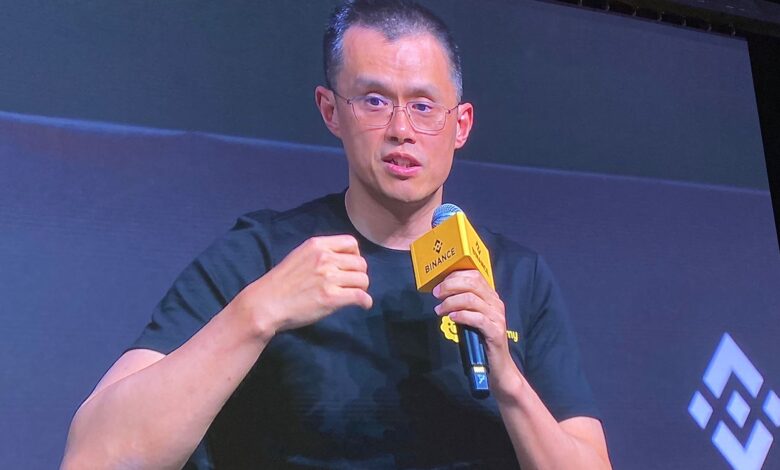CZ on the Future of Blockchain: Decentralized Wallets, BNB Chain’s Growth, and Solana’s Challenges

In a recent podcast discussion with Eowyn Chen, CEO of Trust Wallet, Changpeng Zhao (CZ), Binance former CEO, shared his insights into the evolving landscape of crypto, decentralized finance (DeFi), and the future of wallet technologies were nothing short of fascinating.
Trust Wallet: A Vision Beyond Trading
A key topic was Trust Wallet, which Binance acquired in 2018. CZ sees it as core blockchain infrastructure, comparing it to a browser for the internet. The ability to store and interact with assets via a decentralized wallet is essential for the future of blockchain. According to CZ, blockchain technology is not just about trading; most users leverage it for remittances, identity, and government services.
Since its acquisition, Trust Wallet has grown to over 200 million users—about 77% of Binance’s registered users. Despite this, overlap between Binance and Trust Wallet users is only 50%, as the latter attracts those focused on self-custody and decentralized finance rather than frequent trading.
Decentralized Wallets: Future of Challenges
CZ believes decentralized wallets will replace exchanges as the primary crypto interface, calling them the gateway to blockchain. “The exchange shouldn’t be the wallet; the wallet should be the wallet,” he says, emphasizing their role in asset storage, dApps, and smart contracts. While exchanges remain vital for liquidity, wallets will be the go-to tool for everyday users.
User experience remains a challenge, especially with private key management. While Multi-Party Computation (MPC) wallets and cloud recovery help, CZ insists wallets must be as easy to use as social media platforms for mass adoption. “Most people need to hold assets, earn interest, pay for things, hold their identity, and interact with government services,” he concludes. “We need to build wallets that provide these utilities.”
Speculation vs. Long-Term Utility
CZ acknowledges speculation drives crypto but warns it shouldn’t overshadow value creation. “There are those focused on short-term gains, but I believe the majority of builders in this space are long-term thinkers,” he says. While short-term speculators like meme coin traders generate noise, he notes, “They’re looking for quick opportunities, but they don’t contribute to the long-term value.” In contrast, long-term builders, though quieter, are focused on foundational growth and innovation.
CZ takes a pragmatic view on meme coins, acknowledging their entertainment value and role in keeping crypto “hot.” “Some will have staying power, like Dogecoin, which has lasted longer than expected,” he says. However, he warns many will fade, urging investors to focus on fundamentals. “It’s crucial to examine the fundamentals of any coin—its vesting periods, distribution, and the overall economic model,” he advises, emphasizing long-term value over hype.
He predicts wallets will evolve into specialized types—some for short-term traders, others for long-term investors—creating a more diverse and resilient ecosystem.
Shifting Perspectives on Global Crypto Policy
CZ’s perspective on government involvement in crypto has notably evolved over the past few months. Just a few months ago, he described the U.S. government’s stance as a “war on crypto,” with strict regulations that seemed to stifle innovation and adoption. However, the recent shift in U.S. policy, particularly under the current administration, has been a game changer. The U.S. is now embracing a more favorable stance on crypto, much to CZ’s surprise.
This turnaround is a significant development, considering the U.S.’s global influence on economic and financial markets. According to CZ, the U.S. has historically set the tone for global crypto policy, and now, with more states in the U.S. adopting crypto-friendly positions, the ripple effect is being felt worldwide. As more U.S. states embrace crypto, other countries are following suit, competing for talent and investment—a trend CZ sees as highly positive for the industry.
However, CZ’s relationship with U.S. authorities remains complex. As the majority owner of Binance, he remains a convicted felon in the U.S. after pleading guilty to violating the Bank Secrecy Act. While he has stepped down as Binance CEO, his legal status continues to raise questions about his future role in the industry. When previously asked about the Trump administration and its potential impact on him and Binance, CZ stated, “No wish to be Binance CEO again, but definitely wouldn’t mind a pardon.” As of now, no such pardon has materialized. Whether Trump would consider granting one, and at what price, remains an open question.
The BNB Ecosystem: Vision, Growth, and Challenges Ahead
CZ remains deeply invested in the BNB ecosystem, with over 90% of his holdings in BNB. CZ remains committed to using his influence to accelerate progress and build a more dynamic, collaborative, and resilient BNB ecosystem. The ecosystem has grown rapidly, especially as it moves toward a multi-chain future. However, this rapid expansion brings challenges, including balancing breadth with depth and ensuring quality support across its various components.
CZ emphasizes the need for stronger collaborations within the ecosystem and highlights product development and user experience as key areas for improvement, particularly in liquidity and seamless integration. Looking ahead, CZ envisions a more cohesive blockchain ecosystem with BNB playing a crucial role, while remaining blockchain-agnostic. He stresses the importance of decentralized applications (dApps) to drive adoption and innovation.
BNB Chain vs Solana: A Comparison of Ecosystem Engagement and Long-Term Potential
BNB Chain and Solana both focus on user-friendly products but cater to different user demographics and face distinct scalability and sustainability challenges.
BNB Chain benefits from its association with Binance, one of the largest cryptocurrency exchanges globally. This association helps maintain trust, but also places limits on the types of projects the chain can support. For example, the BNB chain has a clear stance against promoting “pump-and-dump” schemes, which could tarnish its reputation and attract unwanted regulatory attention. In contrast, Solana, which was initially supported by FTX, went through a tumultuous phase following FTX’s collapse but has since evolved into a platform with more decentralized governance. Solana’s ecosystem has seen massive engagement, particularly in meme tokens, though these assets often follow a volatile boom-and-bust cycle.
Regulatory scrutiny also differs—BNB Chain is more cautious, while Solana faces lighter regulation despite its meme token activity. In terms of scalability, Solana has developed tools that handle high volumes, while BNB Chain’s tools are still adapting to increased traffic.
Despite the growing number of users on both chains, the development community on BNB Chain has been quick to adjust, showing resilience and a focus on long-term innovation. The continuous evolution of developer tools and ecosystem support suggests that BNB Chain is prepared to handle more complex applications, making it a strong contender for future growth.
The future likely includes not just one dominant chain but a range of platforms that each serve unique needs and niches within the blockchain world.
Ethereum’s Influence and Trust Wallet’s Role
While the focus has been on BNB Chain and Solana, it’s important not to overlook Ethereum, the largest blockchain by market cap after Bitcoin. Ethereum’s influence has shaped much of the current blockchain landscape, introducing groundbreaking concepts such as ERC20 tokens and decentralized finance (DeFi). Its foundational role continues to drive innovation.
Trust Wallet plays a key role by supporting multiple blockchains, allowing users to interact seamlessly across platforms like BNB Chain, Solana, and Ethereum. This flexibility is crucial for broad adoption and user engagement.





